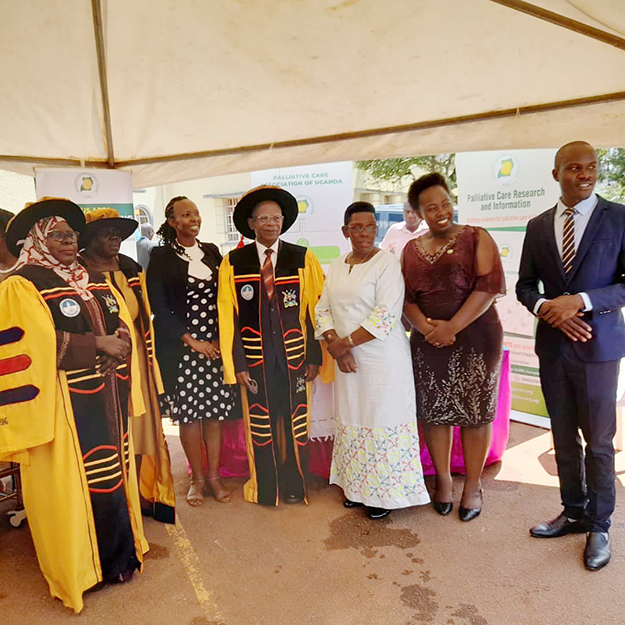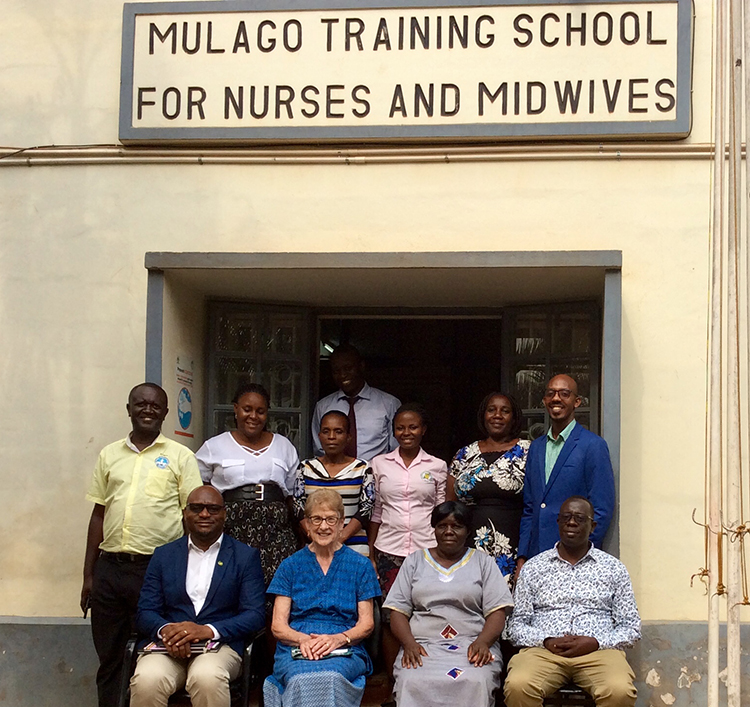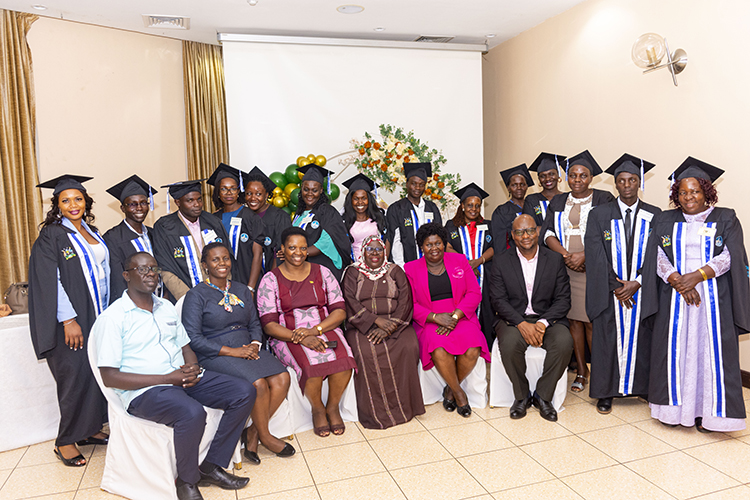Expanding Access to Palliative Care Services through Advocacy, Education and Partnership
Since the start of the Center for Hospice Care (CHC) partnership with the Palliative Care Association of Uganda (PCAU) in 2008, the need to train nurses in palliative care has been a priority. As of 2018, it was estimated that there were fewer than 200 clinical palliative care practitioners available to provide care to an estimated 255,000 patients in need. According to the 2017 Lancet Commission report, Alleviating the access abyss in palliative care and pain relief – [is] an imperative of universal health coverage, yet only 11% of those who need pain control and palliative care in Uganda can access it.



In 2010, CHC and PCAU began providing scholarships for nursing students to complete a one-year diploma in clinical palliative care (DCPC) course offered at the Institute of Hospice and Palliative Care in Africa (IHPCA), a private institution recognized by the Ugandan government. From 2010-2018, CHC and PCAU supported a total of 62 students. These skilled providers have certainly helped alleviate the access abyss to palliative care in Uganda, but both partners wanted to do more to expand access.
In 2019, due to the tireless efforts of PCAU, the government started an Advanced Diploma in Palliative Care Nursing (APDCN) at its largest nursing school, Mulago School of Nursing and Midwifery (MSNM). As part of a large government institution, the ADPCN course accommodates larger numbers and at lower cost for students. CHC and PCAU supported 25 students in the inaugural class in 2019. The pandemic lockdowns impacted recruiting and retention for a few years. The 2023 ADPCN cohort included 21 students from 18 districts of Uganda that have limited or no palliative care services. 2024 admissions are currently underway and not counting these, CHC and PCAU have trained 111 palliative care providers in Uganda.
To ensure these new palliative care nurses were properly supported, PCAU advocated at the national level. In March 2021, the Ugandan Ministry of Health announced a new directive that all public hospitals must allocate space for a palliative care unit in their hospital. This is a result of advocacy by PCAU and other palliative care stakeholders in Uganda who were able to convince the Ministry of Health that Universal Health Coverage cannot be attained unless palliative care is embraced along with preventive, promotive, curative and rehabilitative services.


The government creation of these key positions justifies the significance of the ADPCN program. There will now be a demand for qualified palliative care personnel to fill those positions, for which PCAU has advocated for a long time. By approving palliative care positions at the lower-level HC-IIIs, which serve sub-counties, palliative care will reach deeper into communities. This shows that the government supports the idea that palliative care needs to be widely available. HC-IIIs supervise community health workers and basically have jurisdiction over HC-IIs which means they can reach all levels of patients in need – something PCAU has long advocated for.
 PCAU is now working with the relevant ministries on the integration of the ADPCN program into other training institutions. PCAU has already established a collaboration with the Health Tutors’ College Mulago (HTC Mulago), a health tutor training institution, because an increase of qualified health tutors is necessary to accommodate increasing numbers of ADPCN students. The aim is to create awareness about the ADPCN program and initiate discussions for partnership training sessions for health tutors. This strategic effort has already borne fruit, with a health tutor from HTC Mulago securing sponsorship from Ministry of Education and Sports (MoES) for enrollment in the ADPCN course in 2024.
PCAU is now working with the relevant ministries on the integration of the ADPCN program into other training institutions. PCAU has already established a collaboration with the Health Tutors’ College Mulago (HTC Mulago), a health tutor training institution, because an increase of qualified health tutors is necessary to accommodate increasing numbers of ADPCN students. The aim is to create awareness about the ADPCN program and initiate discussions for partnership training sessions for health tutors. This strategic effort has already borne fruit, with a health tutor from HTC Mulago securing sponsorship from Ministry of Education and Sports (MoES) for enrollment in the ADPCN course in 2024.
Partners from CHC support PCAU’s advocacy efforts and often engage in meetings with the relevant ministries and other partners when they visit Uganda. Both partners are excited to continue collaborating in the future on how to continue expanding access to palliative care services in Uganda!
